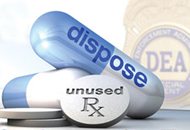The Truth Shall Set You Free, part 9
John 8:31-32 is a conditional statement. Jesus says if we continue in His word, we will be His disciples. We will know the truth, and the truth will set us free. The key words are: “if”, “continue”, “truth”, and “free.”

If we abide in, stay with, live out and proclaim His word through our attitudes and actions, we will know His truth and we will be free.
The Truth Shall Set You Free, part 9 Read More »






 That is most dangerous, for the mind always tries to complete what it pictures. So always picture “success” no matter how badly things seem to be going at the moment.
That is most dangerous, for the mind always tries to complete what it pictures. So always picture “success” no matter how badly things seem to be going at the moment.
